by Jenn Wirtz, Der Braumeister Restaurant owner & beer drinker
Beer drinking in August represents the transition from summer to fall and the German physicist named August Beer, the extremely famous inventor of obscure spectroscopy light absorption laws. Soon we’ll be pouring Oktoberfest brews, then pumpkin ales, and before we know it it Belgian Christmas classics are on tap. During these dog days of summer, I turn to a filling, unfiltered German Weizenbier, also called a Hefeweizen. It is a top fermented wheat with heavy malted wheats and low hops bitterness.
Hefes were my first true beer love. They helped me realize I truly enjoyed the taste of beer. I was 18, it was Oktoberfest season, and out of respect for the law, we’ll say we were in Germany. My first beer was Paulaner Hefeweizen, which came in the color of a late summer sunset. This is the perfect wheat, with a bit more carbonation, but less banana and less clove than is typical of German Wheats. While the clove and banana tastes are notable in most German Wheats, they are NOT added to the beer as flavors, rather it is a taste particular to German strains of yeast. Wheat beers are designed to be poured into a special half liter glass. These glasses have a long hollow stem that widens at the top, like a bowl, to hold a two to three finger head. This unique design helps to retain the carbonation and hold the heavy head.
For a stronger taste of banana and clove there is Aventinus, a doppelbock wheat, aka weizenbock. The term doppelbock used to be synonymous with Paulaner Salvator (a lager we carry on draft at the restaurant), but there are now many different bock beers, in a variety of subcategories. Schneider Weisse’s Aventinus is in the tradition of doppelbocks thus is high in ABV, dark, malty, and sweet. When I go to Munich, Schneider Weisse is always the first brewery I visit, because the Aventinus taste is unrivaled.
When I want a soft mouth wheat with less carbonation I go with Krombacher Weizen. Krombacher is is one of Germany’s largest breweries and is located north of Bavaria in North Rhine-Westphalia. Westphalia is also known for a special ham that tastes similar to prosciutto. Krombacher’s wheat has a subtle peach flavor and is smooth and refreshing. Despite these taste differences from traditional German Wheats, is is still fully in compliance with German Beer Purity Law. This beer is the newest in our collection of over 30 German brews. Enjoy your last days of summer and prost!
